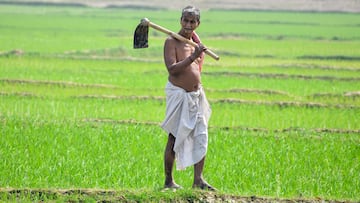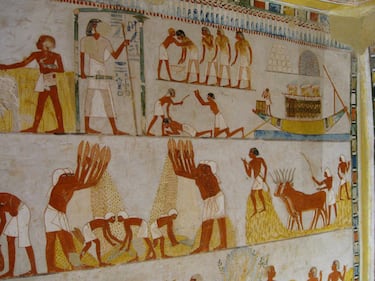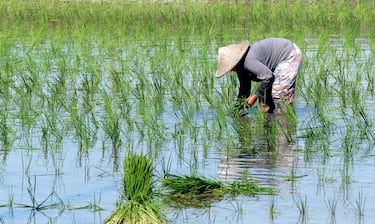Neither the light bulb nor the telephone: this key human advancement was developed in 10 to 24 different places almost simultaneously
Agriculture was one of humanity’s most crucial developments, uniquely created independently by different civilizations across the globe.

When we think about the most groundbreaking advancements in human history, we often recall relatively modern innovations such as steam engines, combustion motors, or even the internet. However, there’s one essential technology without which humanity wouldn’t be what it is today: agriculture. While it involves tools and practical knowledge, agriculture itself can be considered a form of technology. What makes it truly fascinating, aside from its age, estimated at 10,000 years old, is that it was independently developed nearly simultaneously by multiple civilizations across various parts of the planet.
Agriculture: humanity’s key technological advancement independently developed by different civilizations
Agriculture, as we know it, represents one of the great revolutions in human history. What’s most remarkable about its origins is that it wasn’t the result of a single discovery at one location but emerged almost simultaneously in various parts of the world. Estimates suggest it originated independently in 10 to 24 isolated regions where diverse civilizations began cultivating plants, marking the transition from nomadic to sedentary lifestyles. From the Near East to China, Central America, and the Andean regions of South America, agriculture arose parallelly in different cultures, raising intriguing questions about how such a fundamental technology emerged in vastly distant locations.

Examples of parallel agricultural advancements
One notable instance is the Fertile Crescent in Southwest Asia around 9500 BCE, where early sedentary communities cultivated wheat and barley and domesticated animals such as goats and sheep for food, labor, and agricultural support. Around the same time, northern China saw rice cultivation, and in the Indian subcontinent, wheat and barley crops were thriving by 7000 BCE.
Meanwhile, in the Americas, civilizations like the Maya, Aztecs, and Andean cultures began cultivating corn, cassava, and arrowroot around 5200 BCE. New Guinea saw successful cultivation of crops like sweet potatoes, while African populations in the Sahel developed farming methods suited to their climate. This phenomenon of parallel inventions is astounding not only for its geographic scope but also for agriculture’s adaptability to diverse environments, efficiently utilizing natural resources specific to each region.

Why agriculture emerged independently
Though agricultural advancements varied in exact timing, the differences were relatively minor in historical terms. Despite variations spanning centuries or millennia, these developments occurred within a similar timeframe, suggesting they happened parallelly across cultures with comparable technological levels. It’s astonishing that while civilizations had no direct contact, distant communities independently experimented with similar agricultural practices, highlighting both human curiosity and adaptability.
Many researchers suggest that the shift from hunting and gathering to agriculture was an inevitable response to post-glacial climate changes and social or demographic pressures requiring efficient ways to feed growing populations. Others believe agriculture emerged from human curiosity and the ability to observe and experiment with nature. Regardless, agriculture became a cornerstone for the rise of civilizations, shaping humanity as we know it today.
Related stories
Follow MeriStation USA on X (formerly known as Twitter). Your video game and entertainment website for all the news, updates, and breaking news from the world of video games, movies, series, manga, and anime. Previews, reviews, interviews, trailers, gameplay, podcasts and more! Follow us now!

Complete your personal details to comment